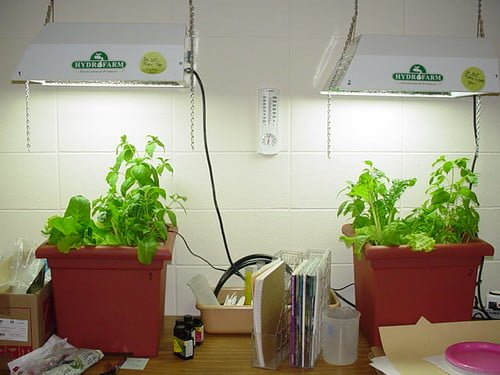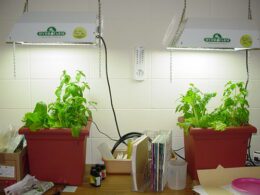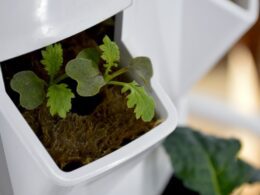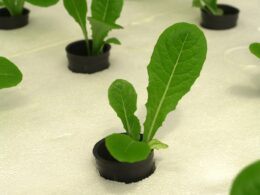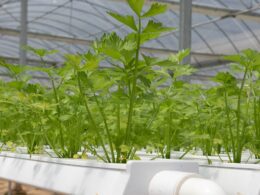Are you interested in starting a hydroponic garden but unsure if you can use tap water for your plants? Water quality is crucial in hydroponics, as it directly affects the growth and health of your plants. While tap water may seem like a convenient and cost-effective option, there are important factors to consider before using it in your hydroponic system.
In this article, we will explore the pros and cons of using tap water in hydroponics and provide tips on how to test and treat your tap water for optimal plant growth. We will also discuss alternative water sources for hydroponics and offer recommendations for using tap water safely and effectively in your hydroponic garden.
So, whether you’re a beginner or experienced hydroponic gardener, read on to learn more about using tap water in your hydroponic system.
Understanding the Importance of Water Quality in Hydroponics
You might not realize it, but the quality of the water you use in your hydroponic system can make all the difference in the health and growth of your plants. Water quality testing is essential to ensure that the water you use is free from contaminants such as heavy metals, chemicals, and bacteria. These contaminants can adversely affect the nutrient solution formulation, leading to poor plant growth, and even plant death.
The nutrient solution formulation is a critical aspect of hydroponics, and it’s essential to get it right. The nutrient solution should contain all the essential nutrients required for plant growth. However, the presence of contaminants in the water can alter the nutrient mix, leading to nutrient deficiencies or toxicities. Therefore, it’s essential to test the water regularly to ensure that the nutrient solution is well-balanced.
In conclusion, the quality of water you use in your hydroponic system is essential, and it’s crucial to test it regularly. Poor water quality can lead to poor plant growth, and even plant death. So, ensure that the water you use is free from contaminants, and the nutrient solution formulation is well-balanced. This way, you can be sure of healthy and thriving plants all year round.
Pros and Cons of Using Tap Water in Hydroponics
It’s important to weigh the benefits and drawbacks of incorporating your local water supply into your hydroponic system. Tap water can be a convenient and cost-effective option for hydroponic growers, but it’s essential to understand its advantages and disadvantages.
Advantages of tap water in hydroponics include its accessibility, affordability, and convenience. Unlike other water sources, tap water is readily available in most places, and it’s cheaper than other options like distilled or reverse osmosis water. Additionally, tap water often contains essential nutrients like calcium and magnesium, which can benefit your plants’ growth.
On the other hand, tap water can have several disadvantages in hydroponics. Firstly, it may contain harmful chemicals like chlorine, chloramine, and fluoride that can affect plant health. Secondly, tap water can have an inconsistent pH level, which is crucial for hydroponic systems. Lastly, tap water can have high levels of dissolved solids, such as salts and minerals, which can lead to nutrient imbalances in your plants.
In summary, while tap water can be a convenient and cost-effective option for hydroponic growers, it’s essential to understand its advantages and disadvantages. Before incorporating tap water into your hydroponic system, it’s crucial to test it for pH, dissolved solids, and harmful chemicals. You may need to use a water filtration system or additives to adjust its quality to suit your plants’ needs. Remember that the quality of your water can significantly impact your plants’ growth and overall yield, so it’s worth taking the time to ensure the best possible water quality for your hydroponic system.
Is It Safe to Use Tap Water for Hydroponics?
Is It Safe to Use Tap Water for Hydroponics? Many hydroponic growers wonder about using tap water in hydroponics. The answer is that tap water can be used, but it may contain impurities that could harm plants. To ensure the safety of your hydroponic system, it is recommended to use filtered or purified water to prevent any potential issues.
How to Test and Treat Tap Water for Hydroponics
Get ready to test and treat your local liquid source for your hydroponic system by ensuring it’s free of harmful chemicals and has a consistent pH level. Testing your tap water is crucial since it can contain a variety of chemicals such as chlorine, fluoride, and heavy metals that may be harmful to your plants. You can check the water quality by using a water testing kit that can measure pH, electrical conductivity, dissolved oxygen, and other factors.
Once you’ve determined the quality of your tap water, you can treat it using various filtration systems. Filtration systems can remove impurities and balance the water’s pH level. One of the most common filtration systems is reverse osmosis (RO). RO systems use a membrane to remove impurities and produce clean water with a balanced pH level. Another option is to use a dechlorinator, which removes chlorine from the water and neutralizes it.
Incorporating testing methods and filtration systems into your hydroponic system can have a significant impact on your plants’ growth and overall health. Remember to regularly test and treat your tap water to ensure the best possible environment for your plants. By doing so, you can help your plants thrive and achieve a bountiful harvest.
| Water Quality | pH Level |
|---|---|
| Ideal | 5.5 – 6.5 |
| Acceptable | 5.0 – 7.0 |
| Poor | Below 5.0 or above 7.0 |
| Filtration System | Function |
|---|---|
| Reverse Osmosis | Removes impurities and balances pH level |
| Dechlorinator | Removes chlorine and neutralizes it |
Remember, tap water can contain harmful chemicals that can negatively affect your hydroponic system. It’s important to test and treat your water to ensure your plants’ health. Consider using filtration systems such as reverse osmosis or dechlorinators to remove impurities and balance the pH level. Incorporating these methods can help your plants thrive and produce a successful harvest.
Alternatives to Tap Water for Hydroponics
If you’re looking for options beyond what typically flows from your faucet, there are alternative sources of liquid that can nourish your hydroponic plants.
Filtered water sources can be a great alternative to tap water. You can use reverse osmosis (RO) water or distilled water, which can be purchased in stores or produced at home with a filtration unit. These options will remove any minerals or contaminants in the water that may harm your plants.
Another option is rainwater. It’s free and can be collected in a rain barrel or other container. However, it’s important to note that rainwater can be slightly acidic and may require pH balancing options for hydroponics. You can use a pH testing kit to measure the acidity of the water and adjust it as needed with pH up or pH down solutions.
If you live near a natural spring or have access to well water, these can also be great options for hydroponic systems. However, it’s important to have the water tested for mineral content and pH levels, as they can vary greatly depending on the source. Once you know the mineral content and pH levels, you can adjust it accordingly to ensure the optimal growth of your plants.
Overall, there are several alternatives to tap water for hydroponics. It’s important to choose a water source that is free of contaminants and has a balanced pH level. By doing so, you can ensure that your plants receive the nutrients they need to thrive.
Conclusion and Recommendations for Using Tap Water in Hydroponics
To ensure your hydroponic plants receive the best nourishment possible, consider exploring alternative liquid sources that are free of contaminants and have a balanced pH level. While tap water may seem like an easy and convenient option, it can contain harmful chemicals and minerals that can harm your plants.
Using filtered water can provide numerous benefits, including removing harmful contaminants, balancing pH levels, and increasing nutrient absorption. On the other hand, using unfiltered tap water can pose several risks to your hydroponic plants. It may contain high levels of chlorine, which can damage plant roots and inhibit nutrient uptake. Additionally, tap water can contain minerals such as calcium and magnesium, which can build up in the growing medium and cause blockages in the irrigation system.
These issues can lead to stunted growth, nutrient deficiencies, and even plant death. Therefore, it’s recommended to use filtered water for your hydroponic system to ensure optimal plant growth and health. You can invest in a water filtration system or use bottled water to avoid the risks associated with unfiltered tap water.
By taking these steps, you can provide your hydroponic plants with the best possible environment for healthy growth and a bountiful harvest.
Frequently Asked Questions
How often should you change the tap water used in your hydroponic system?
To maintain a healthy hydroponic system, it’s important to regularly change the water used. The frequency of water changes depends on a few factors, including the size of your system and the nutrient solution concentration.
As a general rule of thumb, it’s recommended to change the water every two to three weeks. This will help prevent the buildup of harmful bacteria and algae that can negatively impact plant growth.
Additionally, it’s important to monitor the nutrient solution concentration and adjust it as necessary to ensure that your plants are receiving the proper nutrients.
By regularly changing your water and monitoring nutrient levels, you can help ensure the safety and success of your hydroponic system.
Can water additives or supplements be used with tap water for hydroponics?
To ensure the best growth for your hydroponic plants, it’s crucial to use water supplements and balance pH levels. These supplements can provide the necessary nutrients and minerals that may be lacking in tap water.
It’s important to carefully research and choose the right supplements for your specific plants and hydroponic system. Additionally, plants have different pH preferences, so it’s crucial to balance pH levels in your water to ensure optimal growth.
By using water supplements and balancing pH levels, you can help your hydroponic plants thrive and reach their full potential.
Is it safe to use tap water for hydroponics in areas with high levels of water hardness or chlorine?
When it comes to hydroponics, water quality concerns are important to consider, especially in areas with high levels of water hardness or chlorine.
While tap water can be used for hydroponics, it’s important to check the water quality first.
Chlorine and other chemicals in tap water can harm plants and affect their growth, so it’s recommended to use an alternative water source if possible, such as filtered or distilled water.
If tap water is the only option, letting it sit for 24-48 hours before use can help dissipate some of the chemicals.
Ultimately, the goal is to provide clean and safe water for your hydroponic plants.
Are there any specific types of tap water filtration systems that are recommended for hydroponics?
When it comes to hydroponics, water quality is key. There are a variety of filtration methods that can be used to improve the quality of tap water for hydroponic systems.
Reverse osmosis filters are commonly used to remove impurities and chemicals from tap water, while activated carbon filters can help eliminate chlorine and other contaminants. It’s important to choose a filtration system that is appropriate for the specific needs of your hydroponic setup, as well as to regularly test the water quality to ensure that it remains within safe levels.
By investing in a good filtration system and staying vigilant about water quality, you can help ensure the success and safety of your hydroponic garden.
How does the pH level of tap water affect hydroponic plant growth?
To maintain healthy hydroponic plants, it’s important to optimize the pH level of your tap water. Tap water pH effects can have both benefits and drawbacks on plant growth.
If the pH level is too high or too low, it can inhibit nutrient uptake and lead to stunted growth or even death. However, by adjusting the pH level, you can create an optimal growing environment for your hydroponic plants.
To do this, you can use pH testing kits or add pH adjusters to your tap water. By taking the time to optimize your tap water pH, you can ensure that your hydroponic plants thrive and grow to their full potential.
Conclusion
So, can you use tap water for hydroponics? The answer is yes, but with some caution.
Tap water can contain minerals, chemicals, and microorganisms that can harm your plants. However, testing and treating tap water can make it safe for hydroponics.
If you decide to use tap water, make sure to invest in a reliable water testing kit and a water treatment system. You can also consider using alternatives to tap water, such as distilled water or rainwater.
Ultimately, the success of your hydroponic system depends on the quality of your water. So, take the time to research and choose the best water source for your plants.
With proper care and attention, your hydroponic garden can thrive and provide you with fresh, healthy produce year-round.





